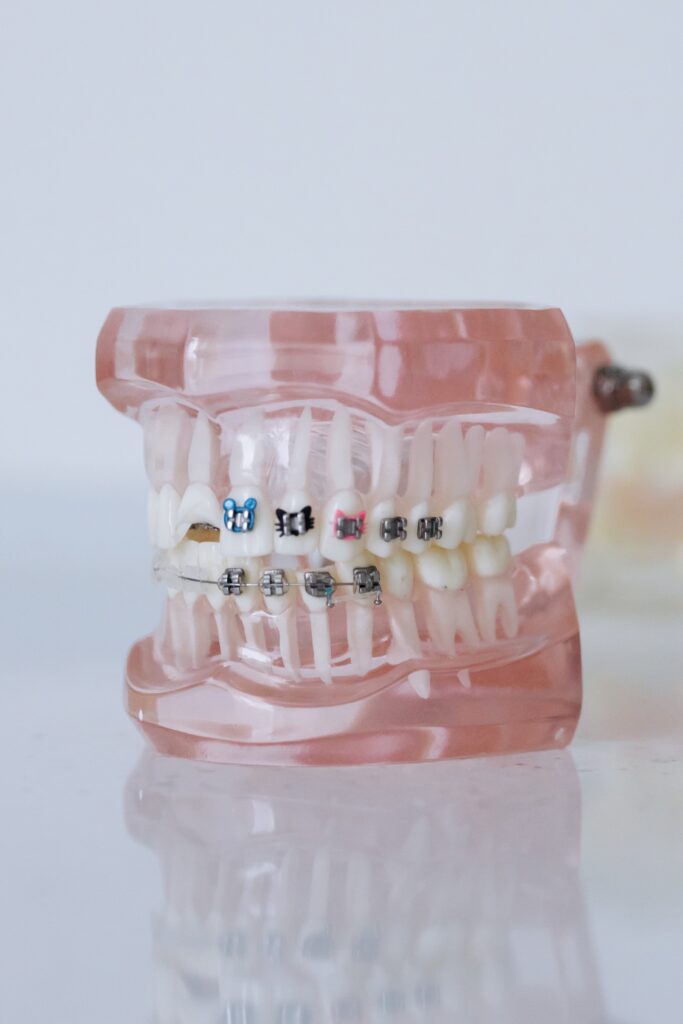When you first get braces, the dentist usually gives you a small brush and instructions to clean them daily. This is because even though your teeth are hidden under braces, they’re still susceptible to plaque and tartar buildup. That’s why it’s important to maintain excellent oral hygiene once you have them. Using the right type of toothbrush can help reduce bacteria and improve your smile. Not all brushes are made equally when it comes to braces. Your best bet is to find a brush that has soft bristles that will not scratch or irritate the metal wires or brackets holding your teeth together. There are several types of brushes that work well with braces:

Soft Bristles Toothbrush For Braces
If you have braces, you’ll want to make sure you select a toothbrush with very soft bristles. Most braces are made out of nickel-titanium, and while this is an excellent metal for braces, it can be scratched by stiff bristles. Look for toothbrushes with soft nylon bristles that will not irritate your mouth or teeth. It’s best to select a soft toothbrush even before you get braces because it’s recommended to start brushing your teeth as soon as your baby teeth come in.
Flossing Toothbrush
Most people think of flossing as the number one way to remove food particles and plaque from between teeth. It’s also a great way to remove bacteria from around braces. If you have braces and didn’t know about flossing with a toothbrush, now’s the time to start. A flossing toothbrush has a small wire that extends from the bristles. Flossing toothbrushes are convenient and easy to use. Just run the wire between your teeth and under your braces. You can also use flossing toothbrushes as an alternative to dental floss. Flossing toothbrushes can be used anywhere you have teeth, even if you don’t have braces.

Stiff Bristles Toothbrush
As mentioned earlier, a toothbrush with stiff bristles can be used with braces. But it’s important to remember to use the gentlest scrubbing motion possible so you don’t irritate your gums or teeth. It’s best to use a soft or extra soft toothbrush with stiff bristles. This will reduce the amount of pressure you’re applying on your teeth and gums. Several types of stiff bristles can be used to clean around braces. These include nylon and polyester bristles.
Electric Toothbrush For Braces
An electric toothbrush is a great option for anyone, including people with braces. It cleans your teeth thoroughly and can remove more plaque and bacteria than a manual toothbrush. It’s especially effective for those who don’t have great brushing habits. If you have braces, you can still use an electric toothbrush. Make sure it has soft bristles and a small head that will fit in your mouth. It’s recommended to use an electric toothbrush at least twice a day. Remember to replace your electric toothbrush every three months. This will ensure the bristles stay soft and effective.

Hard Bristles (stainless steel)
If you have braces, you might be tempted to rely on a toothbrush with hard nylon bristles. This is a bad idea. Hard nylon bristles can scratch the metal brackets and wires that hold your teeth together. Instead, you should look for a stainless steel toothbrush. Stainless steel toothbrushes are great for individuals who have braces. They are soft and gentle, but they are also durable and won’t break like a regular toothbrush. They can help you clean them while also protecting your teeth and gums from scratches. Stainless steel toothbrushes are an excellent option for those who have dentures and are looking for an effective and safe way to clean their teeth.
Conclusion
Having braces can make it a little more difficult to keep your teeth clean. That’s why it’s important to use the right type of toothbrush to maintain good oral hygiene. When selecting a toothbrush, make sure it has soft bristles. You also want to ensure it’s big enough to fit in your mouth and reach all the areas needing cleaning. It’s best to use a toothbrush with soft bristles if you have any dental fixtures done.
Make sure to use the gentlest scrubbing motion possible so you don’t irritate your gums or teeth. Also, it’s recommended to use an electric toothbrush at least twice a day for two minutes each time.
If you like our blog post, be sure to check out the products on our website.

